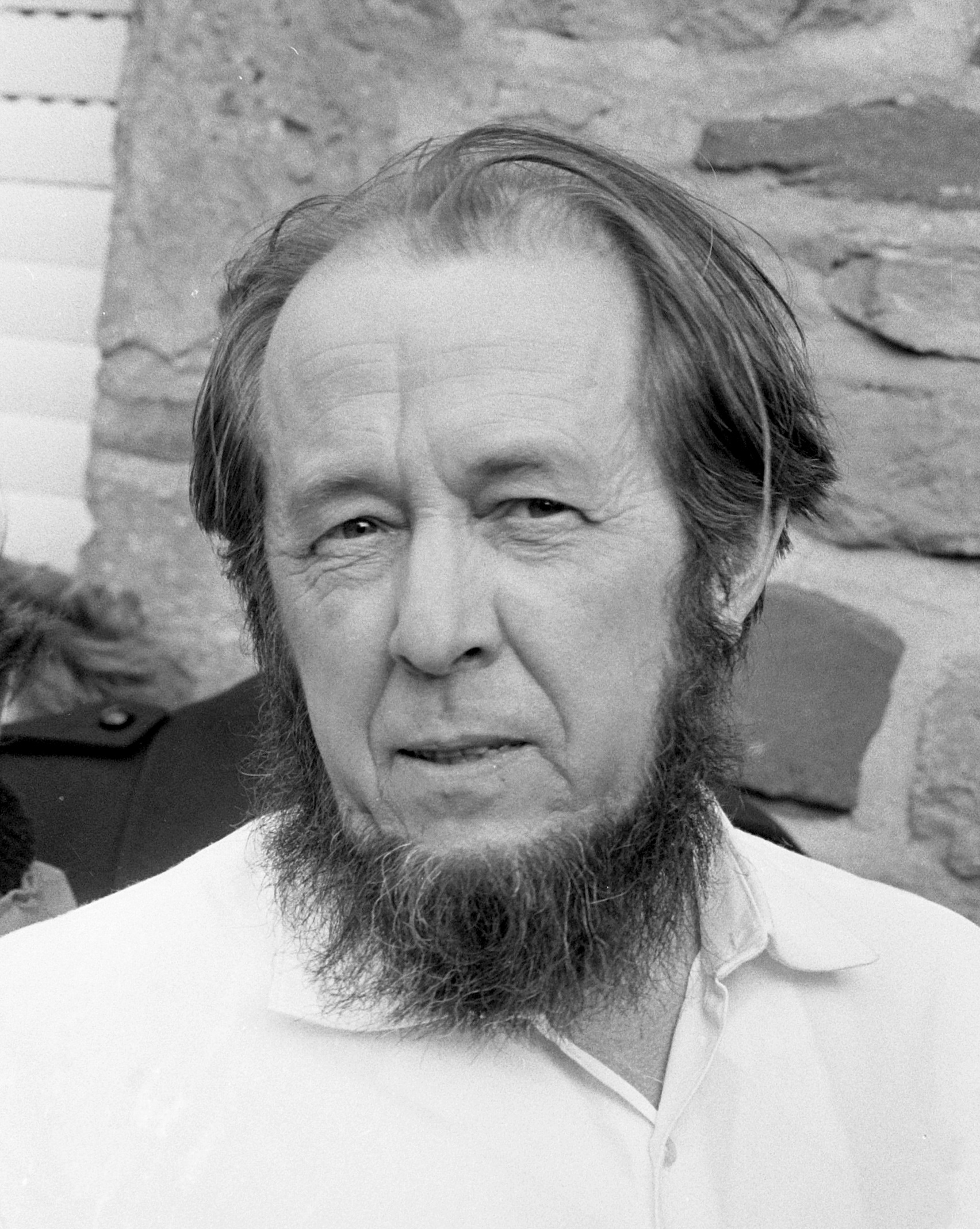Alexandr Isajevič Solženicyn nejznámější citáty
Alexandr Isajevič Solženicyn: Citáty o umění
Alexandr Isajevič Solženicyn citáty a výroky
Zdroj: Alexandr Solženicyn: Řeč o pravdě (edice Svědectví, Paříž 1972; str. 31)
Zdroj: Alexandr Solženicyn: Dopis představitelům Sovětského svazu (Konfrontation Verlag AG, Zürich 1975, str. 13)
„Chcete–li zničit národ, zbavte ho historické paměti.“
Zdroj: ROZHOVOR: Kdo nekleká, je rasista https://neviditelnypes.lidovky.cz/zahranici/rozhovor-kdo-nekleka-je-rasista.A200705_104405_p_zahranici_wag, Neviditelný pes, 2020-07-07, [cit. 2020-07-07].
Alexandr Isajevič Solženicyn: Citáty anglicky
In his interview with Joseph Pearce. " An Interview with Alexander Solzhenitsyn http://www.catholiceducation.org/articles/arts/al0172.html." St. Austin Review 2 no. 2 (February, 2003).
Interview with Joseph Pearce, Sr. (2003)
Harvard University address (1978)
Open letter to the Fourth Soviet Writers’ Congress (16 May 1967); as translated in Solzhenitsyn: A Documentary Record (1970) edited by Leopold Labedz (1970).
Nobel lecture (1970)
Nobel lecture (1970)
“Call no day happy 'til it is done; call no man happy til he is dead.”
Solzhenitsyn here seems to be paraphrasing Sophocles who expresses similar ideas in Oedipus Rex. This is also a direct reference to Plutarch's line, "call no man fortunate until he is dead," from his "Parallel Lives".
The Oak and the Calf (1975)
“A man should build a house with his own hands before he calls himself an engineer.”
One Day in the Life of Ivan Denisovich (1962)
“A man with two trades to his credit can easily learn another ten.”
One Day in the Life of Ivan Denisovich (1962)
Harvard University address (1978)
Speech in Washington D.C., June 30, 1975; Solzhenitsyn: The Voice of Freedom http://www.archive.org/details/SolzhenitsynTheVoiceOfFreedom, p. 30.
Harvard University address (1978)
Nobel lecture (1970)
Nobel lecture (1970)
Interview With Aleksandr Solzhenitsyn on Ukraine (May 1994)
Interview With Aleksandr Solzhenitsyn on Ukraine (May 1994)
“Why does the (U.S.) State Department decide who should get Sevastopol?”
Interview With Aleksandr Solzhenitsyn on Ukraine (May 1994)
Interview With Aleksandr Solzhenitsyn on Ukraine (May 1994)
Interview With Aleksandr Solzhenitsyn on Ukraine (May 1994)
Interview With Aleksandr Solzhenitsyn on the New Russia and Ukraine (May 1994)
"Father Severyan", in November 1916: The Red Wheel: Knot II (1984; translation 1999).
Kontext: At no time has the world been without war. Not in seven or ten or twenty thousand years. Neither the wisest of leaders, nor the noblest of kings, nor yet the Church — none of them has been able to stop it. And don't succumb to the facile belief that wars will be stopped by hotheaded socialists. Or that rational and just wars can be sorted out from the rest. There will always be thousands of thousands to whom even such a war will be senseless and unjustified. Quite simply, no state can live without war, that is one of the state's essential functions. … War is the price we pay for living in a state. Before you can abolish war you will have to abolish all states. But that is unthinkable until the propensity to violence and evil is rooted out of human beings. The state was created to protect us from evil. In ordinary life thousands of bad impulses, from a thousand foci of evil, move chaotically, randomly, against the vulnerable. The state is called upon to check these impulses — but it generates others of its own, still more powerful, and this time one-directional. At times it throws them all in a single direction — and that is war.
Nobel lecture (1970)
Kontext: I believe that world literature has it in its power to help mankind, in these its troubled hours, to see itself as it really is, notwithstanding the indoctrinations of prejudiced people and parties. World literature has it in its power to convey condensed experience from one land to another so that we might cease to be split and dazzled, that the different scales of values might be made to agree, and one nation learn correctly and concisely the true history of another with such strength of recognition and painful awareness as it had itself experienced the same, and thus might it be spared from repeating the same cruel mistakes.
Nobel lecture (1970)
Harvard University address (1978)
Autobiographical sketch (1970), at Nobelprize.org http://nobelprize.org/nobel_prizes/literature/laureates/1970/solzhenitsyn-autobio.html
Harvard University address (1978)
Harvard University address (1978)
